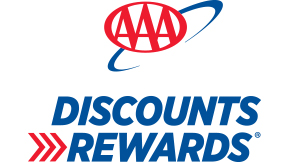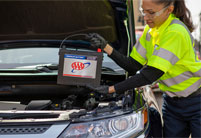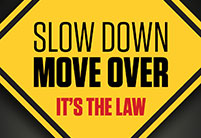Simple steps to maximize your car’s resale value
Simple steps to maximize your car’s resale value

Depreciation is the single most expensive cost of owning a vehicle. Your vehicle depreciates the minute you drive it off the lot, and steadily decreases in value each year. We know that vehicles are, typically, not going to increase in value, but how much depreciation can we expect?
Once you buy a vehicle, it is no longer new and now must compete as a used car. Even in showroom condition, it is only worth the market value for that used model. This depreciation is typically thousands of dollars, plus the taxes and fees paid at purchase.
As a quick rule of thumb, a car will lose between 15 percent and 20 percent of its value each year. After three years of a car’s life, depending on the vehicle, it may have depreciated 50 percent.
If you plan to keep your vehicle for less than five years, resale value should be an important consideration. Getting the maximum price when you sell or trade starts with the purchase of that vehicle.
- Research the selling price of used vehicles in your market. Study various makes, models, and even trim levels to understand which vehicles command the highest resale value.
- Select a brand, model, and trim level with good residual value. Manufacturers that have invested heavily in used-vehicle certification programs have helped improve the resale value of those vehicles.
- Choose options carefully. Air conditioning, automatic transmission, leather seats, a moon roof, and rear-entertainment systems can positively impact resale value. There is more demand for automatic transmissions over manual, and automatic transmissions can typically recoup between $1,000 and $2,000 of their cost. Luxury features like adaptive cruise control and lane-departure warnings may be appealing to new buyers, but used-car shoppers are much more price sensitive.
- Cover your bases. Used car shoppers expect comparable models to have equivalent options – such as leather or heated seats. Instead of increasing the value of a vehicle with these features, it decreases the value of cars in that category that don’t have that equipment. Any vehicle without electric windows, adjustable steering and Bluetooth or USB ports will have a more difficult time competing in the used-car market.
- Pick a conservative color. Black, white, and gray are the safest choices; for some models, black and white are a symbol of luxury. Interior colors should be conservative as well; unique embroidered leather or special trim will not add to the resale value.
- Buy a vehicle that will appeal to the widest range of buyers. Focus on features everyone will want and don’t worry about adding custom options.
More than brand or features, the overall condition of your vehicle matters most to used-car shoppers. Keep your vehicle in top condition to preserve its value.
- Drive safely and avoid a collision. Any collision history – even if the damage is repaired – decreases your resale value. Fix dents, scratches, and dings immediately before they become more serious. Paintless dent repair is a cost-effective option in many situations.
- Follow the proper maintenance schedule and keep all receipts. If you're looking for a repair shop, turn to the AAA Approved Auto Repair Facility Locator to find one of 7,000 trusted shops in the US.
- Complete any necessary recalls; they are free, and not having them performed could compromise the safety and operation of the vehicle.
- Unusual paint schemes or extreme options are a turn-off to used-car shoppers and can bring down your resale value. Spending $500 on an upgraded stereo could make you happy, but four or five years from now it won’t bring you any extra money when you sell or trade. Never add a modification that will void the warranty.
- Never smoke in the vehicle, and avoid eating in it to prevent unpleasant smells and stains. Have the vehicle detailed regularly to preserve the interior and finish.
- Most important, keep the mileage low. High mileage will hurt trade-in values and low mileage cars will sell for a premium. According to the U.S. Department of Transportation, annual mileage of roughly 13,500 a year is considered average. If you drive more than that it will detract from your car’s value; if you drive less than the average, your car is likely to depreciate at a slower rate.
When it comes time to sell your vehicle, you will need to determine its condition. Many people overestimate the condition of their car, discounting dings, scrapes, and wear. How does the National Automobile Dealers Association define vehicle condition?
- Excellent condition means there are no mechanical defects, and the vehicle passes all necessary inspections. Paint, body, and wheels have a minimum of minor surface scratching with a high gloss finish and shine. The vehicle’s interior has minimal soiling and wear, and all equipment is in working order.
- Good condition means that the interior has minimal soiling and wear, and all the equipment is in complete working order. The vehicle will need minimal reconditioning to be made ready for resale.
- A vehicle in average condition is mechanically sound but may require some repairs or servicing to pass necessary inspections. The paint, body, and wheel surfaces may have moderate imperfections, but the finish and shine can be improved with restorative repair. A vehicle in average condition will need a fair degree of reconditioning to be made ready for resale.
- In the “rough” category, vehicles have significant mechanical defects and need substantial work to restore reasonable running condition. Paint, body, and wheel surfaces have considerable damage, potentially including dull or faded paint, dents, frame damage, or rust. The interior has above average wear, and some equipment may not be working properly. Often there are heavy stains on the headliner, carpet, and upholstery. These vehicles will need substantial reconditioning and repair to be made ready for resale, and some issues may be difficult to restore.
Ready to replace your vehicle? Turn to the AAA Auto Buying Program and AAA’s auto loan program for great savings and affordable financing from a name you trust.












